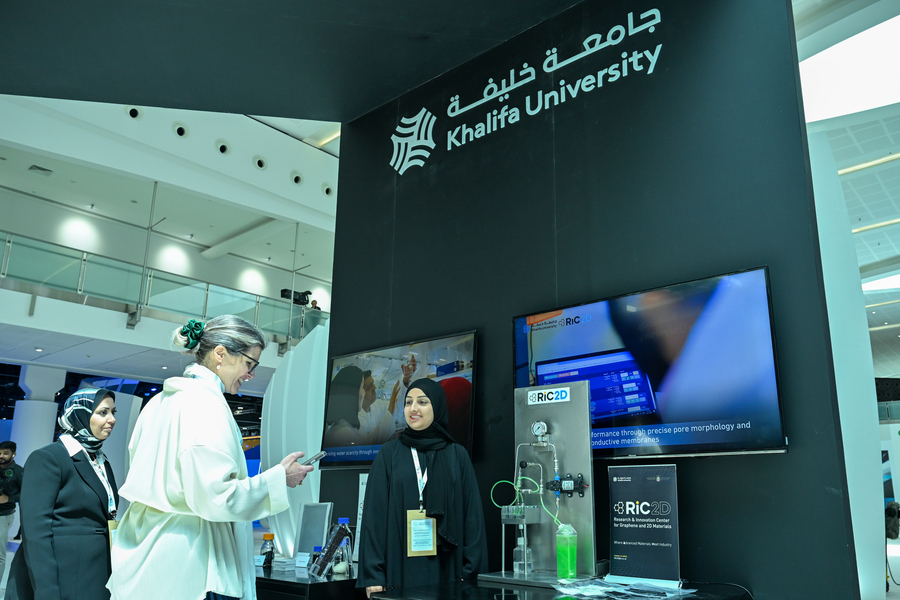Abu Dhabi-UAE: 27 June, 2012 – Masdar Institute of Science and Technology and Ecole Polytechnique Federale de Lausanne, Switzerland, today announced they co-organized a two-day workshop to highlight the importance and relevance of the applications and benefits of clean energy and smart grids under the umbrella of intelligent urban energy systems.
The workshop, held from 10-11 June was the second in a series of events on the intelligent governance of urban systems. Titled ‘Clean Energy and Smart Grids in the Gulf: Potential and Applications’, the workshop on the first day covered smart grids, while the following day focused on clean energy.
Over 30 professionals including policy-makers, managers and academics from the region, covering expertise from the energy sector, intelligent systems, as well as policy and governance, attended the Abu Dhabi workshop. The event aimed at facilitating the creation of a community of experts in the management and governance of intelligent urban systems in the region and beyond.
Prof. Matthias Finger from EPFL, provided the welcome remarks, while Dr. Sgouris Sgouridis, Engineering Systems and Management program, Masdar Institute, and Prof. Peter Armstrong, Mechanical Engineering program, Masdar Institute, spoke about ‘Advances in Smart Grids Research’. They highlighted the potential benefits that smart infrastructures can bring to a hot climate arid region like the GCC. They also highlighted ongoing research at both Masdar Institute and EPFL and outlined how appropriate governance of these infrastructures can make clean and smart energy a reality. Corresponding research includes behavioural analysis of demand response to different incentive schemes, the potential of pre-cooling of buildings’ slabs for reducing peak hour cooling demand and the institutional structure necessary to implement smart grids successfully.
The ‘Challenges in Smart Grid Applications’ were debated by Osman Ahmed from Siemens, Tim Peck from IBM, and Dohyun Goh from the Global Green Growth Institute, Abu Dhabi. Smart-grids in cities as a means to improve the performance of urban energy systems were discussed among others. Various aspects of governance and regulation of smart grids, including likely paths for their development were also covered during the session.
Ramiz Alaileh of the Regulation and Supervision Bureau Abu Dhabi, Bruce Smith from Abu Dhabi Water and Electricity Authority (ADWEA), and Katarina Uherova Hasbani from Dubai Supreme Council of Energy, subsequently addressed the governance perspectives on smart grids and smart energies, highlighting the existing efforts at RSB, ADEWA, and DEWA to pilot and deploy smart metering in the region.
On the second day, Pierre Rossel of EPFL, Hannes Reinisch from PricewaterhouseCoopers, and Dr. Sgouris Sgouridis offered their perspectives on ‘Clean Energy and the Gulf Region’. The discussions covered clean energy for cities including microgrids in the urban network, technology comparisons and GCC-specific challenges. Other areas covered by the speakers included economic viability of clean energy technologies and energy storage, and governance and regulation of clean energy, including investments. A roundtable concluded the discussions of the day.
The workshop was aimed at identifying the challenges and the opportunities regarding the transition of urban systems towards cleaner energy practices. It also explored how intelligence, in particular the active use of the Information and Communication Technologies (ICTs), can and already does contribute to cleaner urban energy practices. Participants also discussed how the governance of such intelligent urban energy systems can and must be improved. Finally, the participants also had the opportunity to visit the concrete renewable energy applications that are being piloted and implemented at Masdar City.
Dr. Sgouris Sgouridis said: “Smart grids hold the key to effective implementation of renewable energy and for managing the demand for energy especially during the resource-straining peak summer hours. Positive incentive schemes, where instead of pricing, smart-grid users are offered a benefit for curtailing their consumption at critical times could work well in the current tariff environment providing benefits for both the government that subsidizes energy consumption and the users. Professionals at the workshop analysed and identified both the technical and institutional areas that need to be focused on to implement such an intelligent system. We are confident the event offered ample insight for the participating professionals on the transition of urban systems towards cleaner energy practices.”
Dr. Matthias Finger said: “It became obvious, at the workshop, that technology and institutions must be considered together. The smart grid and smart energy technologies can only deploy their full potential if all the different actors, including the utilities, the regulators and the policy makers play their appropriate roles and are optimally coordinated. In other words, technological and institutional engineering are complementary and offer a unique potential for energy efficiency gains and reduced consumption.”






